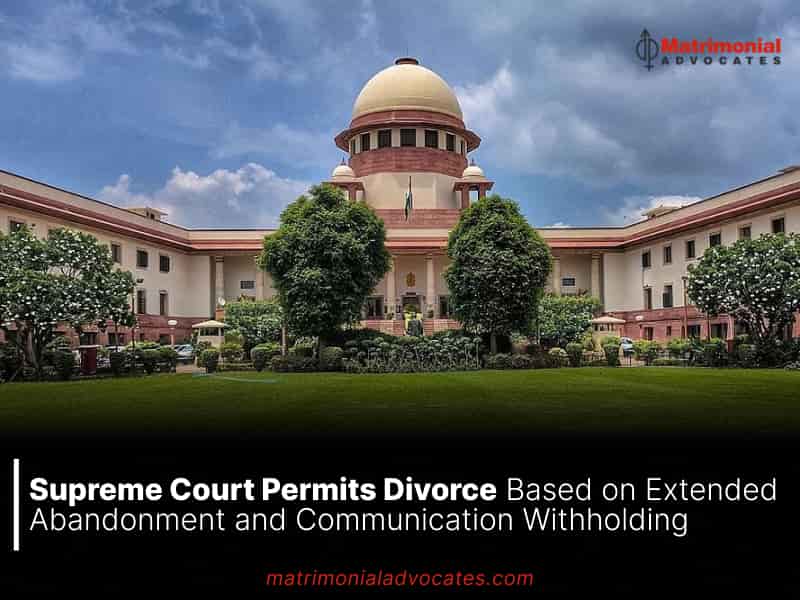
Exercising its plenary powers conferred by Article 142 of the Constitution, the Supreme Court is vested with the authority to decree the dissolution of matrimonial ties when one party has protractedly deserted the other and persists in refusing all attempts at reconciliation. In the matter of Prakashchandra Joshi, who has maintained separate residence from his spouse since February 2011, the Court, in the exercise of its discretionary powers, adjudicated and granted a decree of divorce.
In a recent adjudication, the Supreme Court of India has determined that persistent and prolonged desertion by a spouse, coupled with a disregard for repeated attempts by the other consort to seek restitution of conjugal rights, constitutes valid grounds for the irretrievable breakdown of the marital union. Consequently, the Court finds it appropriate to invoke its overarching powers under Article 142 of the Constitution to decree the dissolution of the matrimonial bond.
Contrary to the concurrent findings of both the trial court and the Bombay High Court, a bench comprising Justices B R Gavai and Prashant K Mishra, in the case of Prakashchandra Joshi, has issued a divorce decree. This judicial pronouncement emanates from Mr. Joshi’s separation from his wife since February 2011.
Within the framework of granting divorce on the basis of the irretrievable breakdown of marriage through the invocation of powers under Article 142, the Supreme Court meticulously scrutinized the specific circumstances of the case. It was ascertained that the husband initiated proceedings for the restitution of conjugal rights in 2011 subsequent to his wife’s relocation to Canada, during which she maintained a state of incommunicado, manifesting a lack of response even to trial court summons. Subsequently, the husband opted to withdraw the plea for the restitution of conjugal rights and, in lieu thereof, filed a petition for the dissolution of the marriage on grounds of desertion. The trial court dismissed the plea, a determination that found concurrence in the verdict of the Bombay High Court. In response to these determinations, the husband sought redress by filing an appeal before the Supreme Court.
Justices Gavai and Mishra said, “We see that the parties have been residing separately since Feb 2011 and there has been no contact whatsoever between them during this long period of almost 13 years. The wife is not even responding to the summons issued by the courts. It seems she is no longer interested in continuing the marital relations with the husband. Therefore, we have no hesitation in holding that the present is a case of irretrievable breakdown of marriage as there is no possibility of the couple staying together.”





